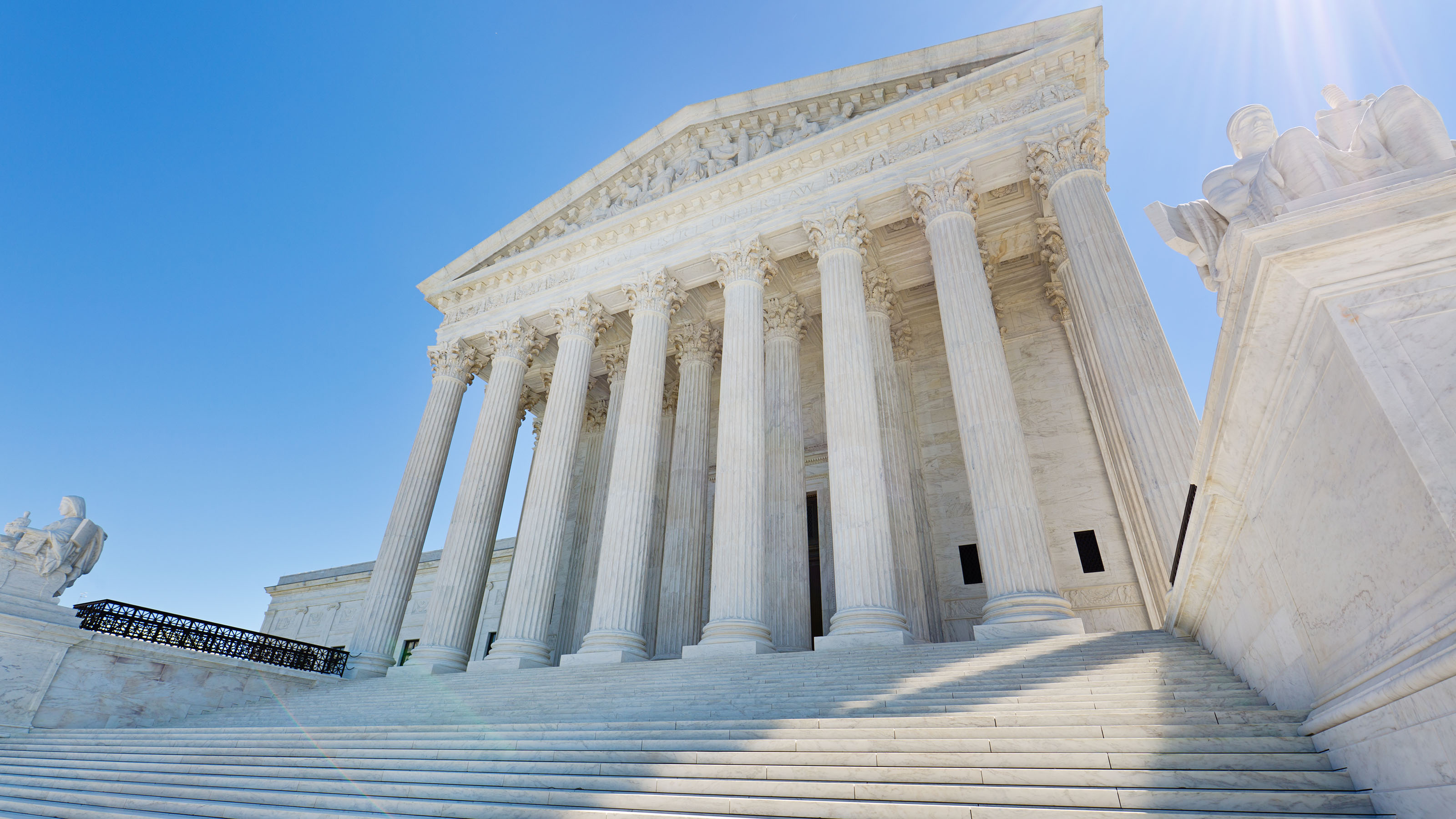The Moon, Cronkite & Health Care
Forty years ago, man stepped on the surface of the moon, forever changing mankind's place in world history, the solar system and the universe.

Profit and prosper with the best of Kiplinger's advice on investing, taxes, retirement, personal finance and much more. Delivered daily. Enter your email in the box and click Sign Me Up.
You are now subscribed
Your newsletter sign-up was successful
Want to add more newsletters?

Delivered daily
Kiplinger Today
Profit and prosper with the best of Kiplinger's advice on investing, taxes, retirement, personal finance and much more delivered daily. Smart money moves start here.

Sent five days a week
Kiplinger A Step Ahead
Get practical help to make better financial decisions in your everyday life, from spending to savings on top deals.

Delivered daily
Kiplinger Closing Bell
Get today's biggest financial and investing headlines delivered to your inbox every day the U.S. stock market is open.

Sent twice a week
Kiplinger Adviser Intel
Financial pros across the country share best practices and fresh tactics to preserve and grow your wealth.

Delivered weekly
Kiplinger Tax Tips
Trim your federal and state tax bills with practical tax-planning and tax-cutting strategies.

Sent twice a week
Kiplinger Retirement Tips
Your twice-a-week guide to planning and enjoying a financially secure and richly rewarding retirement

Sent bimonthly.
Kiplinger Adviser Angle
Insights for advisers, wealth managers and other financial professionals.

Sent twice a week
Kiplinger Investing Weekly
Your twice-a-week roundup of promising stocks, funds, companies and industries you should consider, ones you should avoid, and why.

Sent weekly for six weeks
Kiplinger Invest for Retirement
Your step-by-step six-part series on how to invest for retirement, from devising a successful strategy to exactly which investments to choose.
Forty years ago, man stepped on the surface of the moon, forever changing mankind's place in world history, the solar system and the universe. Today, man is trying to fix health care. Which one will prove to have been the harder to accomplish? Looks like health care reform is beating Neil Armstrong, NASA, President Kennedy and the late CBS anchorman Walter Cronkite on this score.
Cronkite, who lived and reported the American Century, delivering the news from World War II to Reagan, was one of the leading and most impassioned and enthusiastic national advocates for the mission to the moon, memorably losing his composure on air briefly when reporting the "Eagle has landed" at Tranquility base. History changed forever that day 40 years ago. It is rightly being celebrated and commemorated this week and also in the many tributes to Cronkite, who cared so dearly about it and seemed to speak for the nation those many years ago.
I attended a lecture he gave in 2000 on the importance of the landing. Cronkite remarked that landing a man on the moon was so important and historic that if mankind were to survive another 500 years and if future humans were then asked to say one thing they knew about the 20th Century, it would be the moon landing. More than world wars, more than the atom bomb and certainly more than the health care reform effort we have today.
From just $107.88 $24.99 for Kiplinger Personal Finance
Become a smarter, better informed investor. Subscribe from just $107.88 $24.99, plus get up to 4 Special Issues

Sign up for Kiplinger’s Free Newsletters
Profit and prosper with the best of expert advice on investing, taxes, retirement, personal finance and more - straight to your e-mail.
Profit and prosper with the best of expert advice - straight to your e-mail.
A friendly test: Name one thing you remember most easily about the 15th Century. Most people would say Christopher Columbus' voyage of discovery to the New World in 1492. Cronkite was probably right about the moon landing, 500 years from now.
Surprisingly, the debate in advance of the historic Apollo missions and today's less historic but still sweeping and ambitious health care reform effort is similar. Opponents of the moon mission at the time said it would cost too much, would not produce useful knowledge and would drive up the deficit while a war was on and rob funding for much more important domestic programs, including education and social welfare. Sound a little familiar?
The moon missions are now famous, of course, for fueling an amazingly diverse and expansive technology industry, spawning thousands of commercial spin-off products and a host of private sector technology companies that employ hundreds of thousands. And it sparked a new age in higher education in engineering and science.
It was a modern rennaissance, a giant leap, and an economic rocket engine all on its own, and there's no turning back. It also made America especially proud as the indisputable leader in space. And of course, we remain so, even audaciously now contemplating a manned mission to Mars in 2030, however unattainable critics might say that is today.
In the same respect, U.S. scientific research has developed arguably the best health care in the world in the last several decades and in so many areas, including cancer research, vaccines, heart surgery, clinical care and pharmaceuticals, but at ever spiralling cost, spurring years and decades of debate and litigation and failed efforts at reform that would cost hundreds of billions of taxpayer dollars to get right.
The current health care reform effort looks to be the most promising in years, but it is certainly, and increasingly, looking hard to accomplish, and it is appearing a goal that many fear is too ambitious, too far to reach...maybe not this summer and maybe not this year. Or, perhaps. That's an unknown for now.
What is known in retrospect was that there was a national determination and clear leadership to put man on the moon 40 years ago. President Kennedy essentially destined it in his inaugural address in January, 1961. Engineers followed through. That great national cause and leadership has yet to reveal itself fully behind the current health care reform effort to date. It's hard to see much happening without a larger push, though. It doesn't have to equal the spirit of the moon mission, but it should need to approach it to be meaningful.
That said, don't be surprised this week to hear President Obama and health reform advocates invoking the spirit of the early moon missions and its leaders, including Walter Cronkite in his own way, as an example of what it takes to shepherd success -- hard won, uncertain at first, across a sea of cynics, then accomplished, lasting and forever historic. Health care reformers might do themselves a bit of good to remember how the moon landing was done 40 years ago. Nothing was certain then. The lessons remain.
Profit and prosper with the best of Kiplinger's advice on investing, taxes, retirement, personal finance and much more. Delivered daily. Enter your email in the box and click Sign Me Up.

-
 The New Reality for Entertainment
The New Reality for EntertainmentThe Kiplinger Letter The entertainment industry is shifting as movie and TV companies face fierce competition, fight for attention and cope with artificial intelligence.
-
 Stocks Sink With Alphabet, Bitcoin: Stock Market Today
Stocks Sink With Alphabet, Bitcoin: Stock Market TodayA dismal round of jobs data did little to lift sentiment on Thursday.
-
 Betting on Super Bowl 2026? New IRS Tax Changes Could Cost You
Betting on Super Bowl 2026? New IRS Tax Changes Could Cost YouTaxable Income When Super Bowl LX hype fades, some fans may be surprised to learn that sports betting tax rules have shifted.
-
 Is a New $25,000 Health Care Tax Deduction Coming in 2026?
Is a New $25,000 Health Care Tax Deduction Coming in 2026?Tax Policy A proposal from GOP Sen. Josh Hawley adds to the chatter about health care affordability.
-
 Money for Your Kids? Three Ways Trump's ‘Big Beautiful Bill’ Impacts Your Child's Finances
Money for Your Kids? Three Ways Trump's ‘Big Beautiful Bill’ Impacts Your Child's FinancesTax Tips The Trump tax bill could help your child with future education and homebuying costs. Here’s how.
-
 Key 2025 Tax Changes for Parents in Trump's Megabill
Key 2025 Tax Changes for Parents in Trump's MegabillTax Changes Are you a parent? The so-called ‘One Big Beautiful Bill’ (OBBB) impacts several key tax incentives that can affect your family this year and beyond.
-
 Will EVs Drive the Vote in Election 2024 Swing States?
Will EVs Drive the Vote in Election 2024 Swing States?Tax Credits Electric vehicle tax credits have somehow become controversial. So car buyer attitudes in swing states might make a difference.
-
 How Four Recent Supreme Court Rulings Impact Your Money
How Four Recent Supreme Court Rulings Impact Your MoneySupreme Court Some U.S. Supreme Court decisions could affect your finances. Here’s what you need to know.
-
 Are Student Loans Being Forgiven or Not?
Are Student Loans Being Forgiven or Not?Student Loans The House and Senate voted to repeal President Biden’s student loan forgiveness plan, but does it even matter?
-
 Etsy, eBay, PayPal Want IRS 1099-K Relief for Online Sellers
Etsy, eBay, PayPal Want IRS 1099-K Relief for Online SellersIncome Tax Companies like eBay, Etsy, and PayPal want Congress to raise the $600 reporting threshold for IRS Form 1099-K to give relief to millions of sellers who use their sites.
-
 Student Loan Forgiveness Blocked For Now Due to Court Rulings
Student Loan Forgiveness Blocked For Now Due to Court RulingsBiden's student loan debt forgiveness program is on hold until the U.S. Supreme Court weighs in.